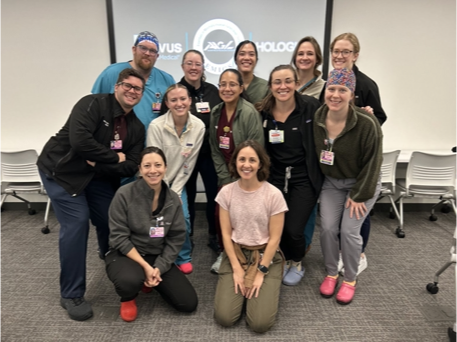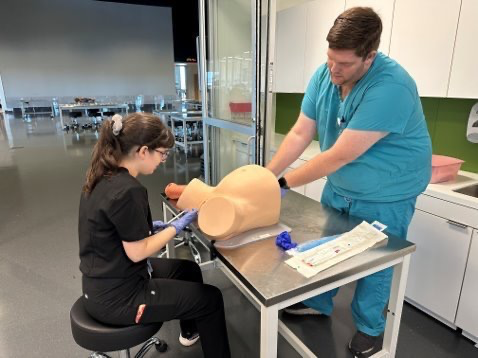
PGY1
- Obstetrics Days
- Night Float
- Benign Gynecology
- Ambulatory OB/GYN
- Family Planning
- Medical ICU
PGY2
- Obstetrics Days / Antepartum
- Night Float
- Benign Gynecology
- Ambulatory OB/GYN
PGY3
- Benign Gynecology
- Gynecologic Oncology
- Reproductive Endocrinology and Infertility
- Elective
- Night Float
PGY4
- Obstetrics Days
- Benign Gynecology
- Gynecologic Oncology
- Ambulatory OB/GYN
Unique Exposures
- Pediatric and Adolescent Gynecology
- Menopause/Midlife Clinic
- Ultrasound Clinic
- Gynecologic Surgery at the VA
- Ambulatory Procedure Clinic
- Planned Parenthood/Gender Affirming Care
- Robotics Curriculum

Simulation Program
- OB Code Simulation
- Office Procedures
- Operative Vaginal Delivery
- Shoulder Dystocia and Postpartum Hemorrhage
- Obstetric Anal Sphincter Repair
- D&C/D&E
- Minimally Invasive Gynecologic Surgery Simulation including hysteroscopy, laparoscopy, Accessa, Sonata, DaVinci

